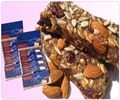A new study has found that people who eat fast food meals three or more times a week are notably heavier than those who don’t consume fast food very often.
A new study has found that people who eat fast food meals three or more times a week are notably heavier than those who don’t consume fast food very often. The study, from Temple University, Philadelphia, also showed that Americans are reluctant to pay more for healthy foods and more likely to consider healthy items bland-tasting.
“The results underscore the importance of competitively pricing healthy foods,” said Kelley E. Borradaile, Ph.D., lead author and research assistant professor in the Department of Public Health and the Center for Obesity Research and Education (CORE) at Temple University.The findings came from random-sample surveys conducted in 2004, 2005, and 2006 with a total of 12,666 ethnically diverse U.S. residents. The principal objective was to examine behaviors and attitudes that influence food choices when eating out.
Participants reported eating out about five times a week, men more often than women. Fast-food restaurants were the most popular eating establishments for breakfast and lunch, while fast-food and casual dining were the two most popular places for dinner. Ease, convenience and cost were among the top reasons respondents ordered value/combo meals at fast-food restaurants.
Temple researchers found eating out can have serious consequences. The body mass index of those consuming three to six fast-food meals per week was significantly greater than the BMI, a measure of body fat based on height and weight, of those who reported never consuming fast-food meals or consuming one to two fast-food meals per week.
Adding an additional one, two or three fast-food meals to that diet was associated with a .63-, 1.26-, and 1.89-kg increase in weight, respectively. Comparing survey responses from 2004 and 2006, Dr. Borradaile and colleagues found that Americans are less willing to pay more for healthy menu items and are more likely to agree with the statement that healthy foods taste bland.
When asked to rate factors that would make healthy menu items more appealing, the 2006 respondents gave the highest scores to better taste, lower prices, greater convenience, and greater availability. About half the participants said they would be more likely to purchase healthy menu items if the foods were offered as part of a value or combo meal, and 41 percent expressed a desire to see nutrition information printed on menus.
Advertisement
The researchers said that fast-food restaurants could encourage healthier eating by offering a variety of tasty, healthy, and reasonably priced foods.
Source-ANI
LIN/C











